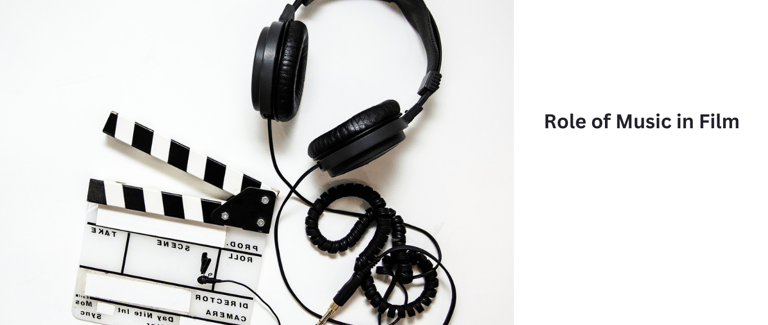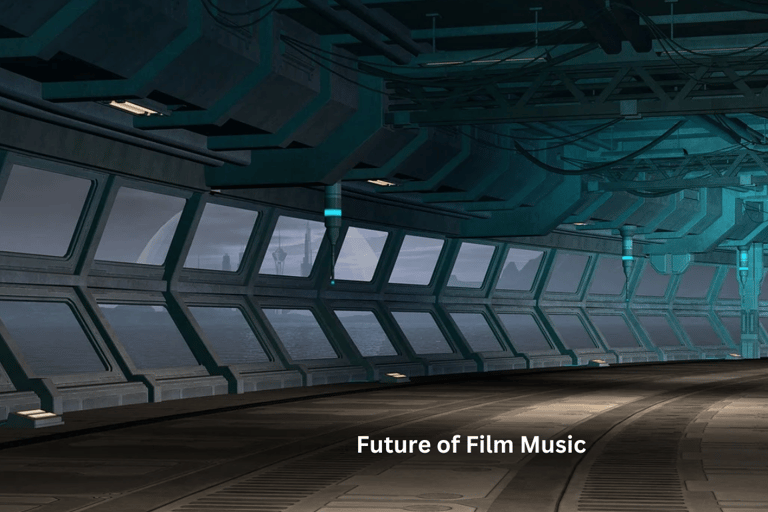The Role of Music in Film Books That Explore Soundtracks and Scores
1/15/20255 min read


The Role of Music in Film: Books That Explore Soundtracks and Scores
Introduction
Watch your favorite movie, minus the music. Sounds pretty boring, doesn't it? In one sense of the word, music is essential to how we see a movie. Whether it is a haunting score for a horror film or a heart-lifting soundtrack for an adventure film, music creates that emotional connection visuals cannot. Over the course of time, books have become excellent aids with which to teach and learn the science and art of film music. Literary treasures thus smash the methods, the narratives as well as the cultural ramifications of scores and soundtracks and open their gates to that marvelous world for all cinema enthusiasts.
The Music in Cinema
Why Music is the Raison d'Etare for Cinema
It is not accompaniment to silence that plays in the movies but music-the tool of narration. Imagine all those swelling orchestras playing in melodramas and soft piano touches in the tear jerking situations, how music lifts up the emotions, carries the audience with the characters, but does not help in creating an atmosphere that transforms mundane happenings into events which are impossible to forget. For instance, the shower scene in Alfred Hitchcock's film Psycho created tension without the screaming violins piercing one's eardrums.
Music Development in Cinema
From silent film to live orchestras accompanying the movie, it has been known that the history of music in cinema stretches as far back as when film scoring turned out to be a craft highly valued with the advent of synchronized sound. From grand, thematic scores of mid-20th century EnnioMorricone and John Williams, modern cinema continues its innovation by fusing orchestras with electronic elements, as seen from Hans Zimmer's groundbreaking Inception score.
Soundtracks and Scores: An Introduction
Introduction to Film Music
A film score is a work composed for but a film. The most common setting in the movie where the score can be seen, however is the orchestral piece; something that is meant to be used to help illuminate the mood for the story, like fantastic The Godfather or Harry Potter-the scores everybody familiar outside the actual films. And then of course there are those scores that brings together, in unison, all onlookers and emotional impulses which may rise before it through sub-titled climaxes and resolutions.
Soundtracks: More than background music
UNLIKE film scores, screenplays' soundtracks very often comprises of the previously composed music that are chosen keeping in mind and aptly taken with the theme a movie can describe. And a perfect score just exaggerates the success of a movie. If it is the movie, Guardians of the Galaxy, then all these old, aged classics sound good enough to fit the movie, and exactly the same soundtrack also becomes cultural icons of their age time but still keep the crowd satisfied.
Books Containing Soundtracks and Scores
Books Everyone Must Read About Film Scores
For the film score enthusiast, there are treasures in books such as Scoring the Screen by Andy Hill, which catalogues every subtlety to writing for the screen and should be a "must-read" for anyone entering into the craft of composition. Treasure number two is Music by Max Steiner: The Epic Life of Hollywood's Most Influential Composer-an inquiry into one of the leading pioneers of film music. Books on the Art of Soundtracks
Books like Soundtrack Nation by Tom Hoover teach one the way an assigned soundtrack sets a story off. Besides the talk over selection, it continues to deconstruct the cultural nature of soundtracks in films. Books such as The Reel World: Scoring for Pictures prove good reads in discussing the more technical aspects behind scoring and shaping a narrative.
Why These Books Are Valuable
Such books give a point of view to the thought concerning how a person would work on a film's sound track and score. It talks about the problems that the composer faces, his relation with the makers of films as well as with the audience and at a more extensive viewpoint, it reveals how cinema music works and what impact they cast upon them. Really cool reading both by film students or music enthusiast/ someone interested only in learning for it leaves that reader appreciate more the craftsmanship even further.
How Music Affects Movie Genres
Horror and Thrillers
The Heart of Horror Movies
Horror movies survive on scaring soundtracks. No horror movie can be comprehended that hasn't included the scary soundtracks of The Shining or A Quiet Place. In thrillers, music creates tension at times even foretelling danger to arrive on screen.
Romance and Dramas
The soothing gentle tones will support the love movies' delicate shots and make it richer in mood impact. The Notebook hosts that heart-rending score of the movie or Titanic's broad orchestral themes. Music becomes an added level that makes it possible for the people to feel all the happiness or pain of a character.
Action and Adventure
Blockbuster action movies have to be scored in frenetic, dynamic music almost akin to matching frenetic energy. Much practice over the years in creating exciting aural tapestries by filmmakers like Hans Zimmer and John Williams has led to how blockbusters, such as The Dark Knight and Indiana Jones, come together.
Music and Story
How Filmmakers Collaborate with Composers
A relationship between a director and a composer is highly comparable to a dance. They will tell their vision to the directors, who will convert this into music. Such legendary collaborations as that of Steven Spielberg with John Williams tell the world how these collaborations will culminate in certain masterpieces, which will be sculpted in the hands of time.
Themes and Motifs in Film Music
One of the common themes is an oft-used technique in the representation of characters or themes. The two ominous chords of the movie Jaws is a warning tale, the famous Superman theme signifies hope. A few motifs become so ingrained in the viewers' psyche that one may remember them better than the film.
Future of Film Music
Film Scoring and Technology
This revolutionary new technological innovation completely revolutionized film music. There are no bounds of what is to be possible from AI scores and 3D soundscapes in the very near future. The digital tools are going to provide the liberties of the composers playing around intricately with various layers of sounds and thus are going to break the creative barriers.
Changing Audiences' Expectations
Modern Viewers demand the heterogeneity in the filmi score. Throughout the years, jazz, hip-hop, and international music got its share in the mainstream cinemas. Of course, it is as much a result of the change in personal taste as the industry's push toward it.
Conclusion
Music lends life to a movie. What otherwise passes off as tedious visual narration remains etched due to it. Let us now see how a great film music and score is responsible for leading our appreciation and knowledge about film up by strides; books like these will put us there in no time. Whatever may be a film enthusiast or mere cinema goer, the adventure into this field of film sound will be indeed rewarding.
FAQs
1. What is film music for?
Music to evoke emotions, set a mood, and hold the viewers with the experience of the film.
2. What is scores and soundtracks?
Scores refer to music compositions particularly written for a film; most of soundtracks are earlier composed music pieces.
3. What are films page-turners for reading?
As a starting reference, Scoring the Screen, by Andy Hill and Soundtrack Nation, Tom Hoover
4. What is an iconic soundtrack?
Something that will create some kind of emotion and summarizes the film story.
5. How has technology changed art in the act of film composing?
Artificial intelligence and software tools have indeed changed how music composition would have been composed today.







